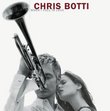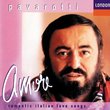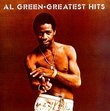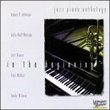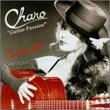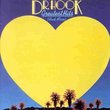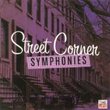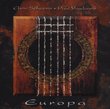| All Artists: Maria Callas Title: The Very Best of Maria Callas Members Wishing: 0 Total Copies: 0 Label: EMI Classics Release Date: 2/12/2002 Album Type: Original recording remastered Genre: Classical Styles: Opera & Classical Vocal, Historical Periods, Classical (c.1770-1830), Modern, 20th, & 21st Century Number of Discs: 1 SwapaCD Credits: 1 UPCs: 724355723024, 724355723055 |
Search - Maria Callas :: The Very Best of Maria Callas
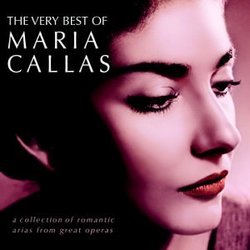 | Maria Callas The Very Best of Maria Callas Genre: Classical
Vincenzo Bellini, Georges Bizet, Alfredo Catalani, and Gustave Charpentier, The Very Best of Maria Callas |
Larger Image |
CD DetailsSynopsis
Album Description Vincenzo Bellini, Georges Bizet, Alfredo Catalani, and Gustave Charpentier, The Very Best of Maria Callas Similarly Requested CDs
|
CD ReviewsThis is great! adelefalk | Overland Park, Kansas United States | 09/06/2002 (5 out of 5 stars) "For the first time in almost fifty years a new Maria Callas CD is out and available for the public to buy. Including some of Maria's rarest heard recordings as well as some of her old classics, this CD is a must for all opera fans, Maria fan or not. Many people ask- "Did Maria have a pretty voice?" A pretty or beautiful voice is something that Maria lacked. However, the 'beautiful' thing about Maria's voice is her amazing control and technique, as well as putting so much feeling into the songs that if you know the translation or not, you still understand every word that Maria is signing because of all the emotion behind it. Some thoughts on my favorites -- Ebben? Ne andro lontana (from La Wally by Catalani) This aria is stunning. Maria starts out in the middle voice, but you can still hear her, which you usually can not with most sopranos. Once she gets higher, she goes right into her head voice with no problems. Then she gets down into her lower dramatic voice, giving the aria a more mysterious feel. When you hear this aria, you always wonder what vocal dynamic you are going to hear next, and you never get bored. Vissi d'arte (from Tosca by Puccini) My personal favorite aria from my all-time favorite opera. In this aria, it sounds like Maria is pleading with god and asking him "why thou hast repaid me thus?" And, that is exactly what Tosca is asking. You can just turn to this aria, close your eyes and see Maria acting this out on stage. So much feeling and depth. Only Maria could sing an aria like this. Very strong, which you rarely hear in this aria from many singers. La mamma morta (from Andrea Chenier by Giordano) As usual, excellent beginning, strong and straight out. A minute and thirty seconds into the aria, Maria surprises you with her amazing head voice. Then she goes back down into her chest voice, again, very strong and straight out. The head voice is very strong and powerful, never pushed or forced like it is with most singers who are afraid of their head voice. Porgi, amor (from Le Nozze di Figaro by Mozart) A rare Callas recording of a Mozart aria. People think that Maria's voice is "wearing" when they listen to Maria's recording of this aria. In some places, you can hear a bit of lack of control, but this aria was recorded when Maria fell in love with Onassis, and when she lost control of her life she also lost control of her voice. For someone who "lost control" of her life and voice, this recording is astounding. It almost sounds like Maria is crying when she sings this aria, and in the opera, the Countess pleads with the goddess of love to grant her some relief or let her die. The "wear and tear" signs in this recording are to Maria's advantage. When Maria goes up to her F natural and comes back down, you can hear a bit of wear, but it sounds like she is crying. This very much shows on the words "O mi rendi il mio" which translate into "either give me back my beloved" and it would make sense for Maria's character to break down into tears on those phrases. Wear and tear or not, it is all to Maria's advantage, and once again, this is an amazing recording. (Half a star is taken out because the wear and tear signs could be hidden a bit better with practice.)J'ai perdu mon Euydice (from Orphee et Eurydice by Gluck) Very pretty and expressive. Many emotions, feeling and power are needed to sing this aria. Once again, Maria will not disappoint you. Ritorna vincitor! (from Aida by Verdi) Amazing control, head and chest voice. For sure, you will be playing this track till the whole CD wears out. Ecco: respiro appena...lo son l'umile ancella (from Adriana Lecouvreur by Cilea) Very pleasant sounding and pleasing to the ear. Maria's voice climbs to the ending climatic note, which is around a high C. She does it all in this aria, going down to the chest voice, sounding a bit like a contralto, then going to the middle voice, sounding a bit like a mezzo. She jumps around from note to note, giving her the flexibility of a coloratura. She holds the final note cutting the orchestra as well as your heart. Un bel di (from Madama Butterfly by Puccini) It is a wonder that Maria never considered Butterfly to be one of her best roles, because almost every aria she sings she takes the lead, making you think that it was written for her. When you close your eyes, you can picture Maria singing, and imaging her lover coming back, and she sounds so sure when she sings "tutto questo avverra, te lo prometto" which translates into "all this will happen, I promise you." A highlight of thee album, for sure. Casta diva (from Norma by Bellini) One of Maria's best roles, and it shows, when she goes into the head voice on the higher notes. This must have taken her a lot of practice and vocal coaching to perfect. The choir behind her is just beautiful, and once again, Maria makes this aria her own. Suicidio! (from La Gioconda by Ponchielli) Very powerful, dramatic, and sad, with the character talking about in her hour of desperation, how suicide is her only escape. Maria again makes you picture the character, and all the feeling. No other words to describe this except amazing and pleasing to the ear. Pace, pace mio Dio! (from La Forza del Destino by Verdi)A very pleasant way to end the album. Maria's voice and excellent vocal technique are all amazing, leaving you open mouthed at the end of the CD. (You need your head checked if you do not like this CD, and if you don't like opera, this CD is a good way to get you started becoming a fan of Maria Callas and a big opera buff!)" Callas Teaches Us About Suffering joe280 | New York, New York United States | 11/03/2002 (5 out of 5 stars) "I have tried for a long time, when I have heard these recordings on other pressings, to describe exactly why I am so eternally attached to Callas and her voice. I believe that no other artist, save for Van Gogh or Michelangelo, and I do put her in that pantheon of genius, was able to transform suffering into great art through music, and create a distinguished legacy for all future generations to hear. When she cries "Euridyce! Euridyce! Mortel silence, vaine éspérance!" I am transported down into the underworld with Orphé, searching for my lost lover and fighting off despair with every note. And so it is with every single cut on this CD. There has never, ever been a singer, whether popular or classical, who can even begin to approach the profound depths of Callas' musical consciousness and genius. This is not the rantings of a queen, but someone who has listened to just about every major artist of the last 50 years, attended over 2,000 opera performances, and have come to realize that she alone stands as the supreme interpreter of dramma per musica. She said many times "It is not enough to have a beautiful voice. First, you must learn the music exactly as written, note for note. Then you must take the music and your voice and set to work on every phrase as if a new voice was required for each role". This is a promethean, olympian task, and so few artists have even bothered to explore this approach as an option in their careers. Magda Oliveiro, Leyla Gencer and maybe Caballé at times were able to fill these big shoes with anything approaching Callas' mastery. The lesson from her legacy is this: if you are going to pursue an artistic path in life, nothing less than complete subjugation to its demands is acceptable. Was every recording and every performance she ever gave us perfect? Absolutely not, and she had her share of duds. But what is miraculous is that even in her bad work (the Mozart album from the 60s for example) her infallible sense of rhythm and tempo left an impression, if not the vocal quality. That is due to the fact that she was a complete artist: everything mattered to her. She was the only opera singer I know of who would sit in on chorus rehearsals to get the feel for what the conductor would do with tempo and the "architecture" that was being used in the overall concept of a production. She was dead serious about her art, but she was also a complete and unabashed genius, and she never took her eyes off the goal. Thank God there was someone like her to show us the way." Seventy seven minutes of pure estacy! Tom Sanders | Lansing, Mi United States | 02/23/2002 (5 out of 5 stars) "I never thought I'd ever hear a Diva that I liked as well as my beloved Monsterrat Caballe, but I had never heard Callas restored to near audiophile sound quality. (I say this owning at least a dozen Callas CDs). This is definately the Callas compilation disc you have been waiting for. Have a box of kleenex handy when you listen to it...you may need it. I'll never abandon Monsterrat, who may have the most beautiful voice in the history of recorded music, but Maria is going to spend a lot of time in my CD player from now on!"
|

 Track Listings (17) - Disc #1
Track Listings (17) - Disc #1